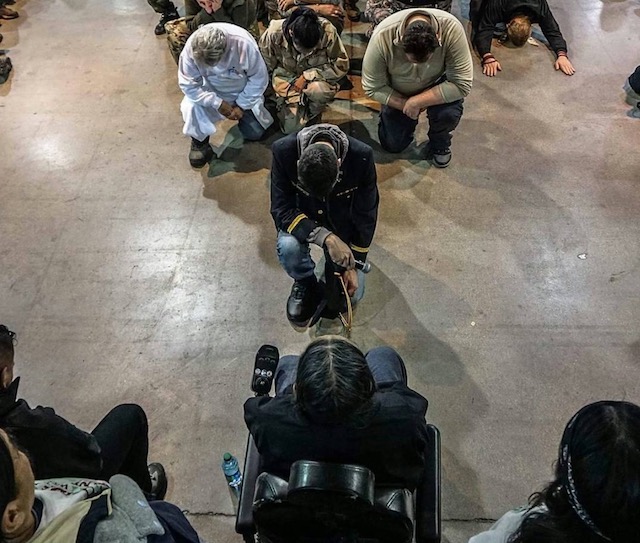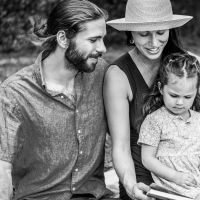My ancestors, and those like them, colonized this land.
They displaced Native peoples, committed acts of unspeakable violence, and established a systematic cultural destruction that is still present today. In short, we are living in a country that was built on genocide. For those of us with European heritage, this is a legacy we must live with every day.
But colonialism isn’t just something that happened hundreds of years ago. It is an ongoing process, one in which most of us passively participate in on a daily basis without knowing it. Because privileged people like me are not the victims of continued colonialism, it is, for the most part, invisible to us.
But here at Standing Rock, colonialism is something I can feel tangibly. Many people here speak of their homeland as occupied territory. “I’m from what is now known as Wisconsin, occupied Ojibwe territory,” someone might say. Hearing someone speak of his or her own people’s displacement and disappearance, I can almost feel an ancestral well of grief within them. I see how people’s lives have been directly affected by the systemic inequalities produced by colonialism, resulting in great personal suffering. At Standing Rock, what I used to see as a historical event is now real to me, happening today.
The Dakota Access Pipeline has become a symbol of continued colonization. The 1,170-mile pipeline would transport crude oil across four states to Illinois, crossing through Native treaty land and under the Missouri river, which provides drinking water to the Standing Rock reservation and 18 million other people downstream. Though Energy Transfer Partners claims a spill is unlikely, historical data on oil pipelines indicates otherwise.
The Standing Rock tribe maintains that they were not adequately consulted before the building of the pipeline, a violation of their legal rights and the treaty of 1851. In the course of their peaceful resistance, Native people have faced extreme violence by police and DAPL security guards. This seizure of their land and violent oppression are not so different from our bloody history with the Native people of this land.
For the first time in recorded history, over 300 Native tribes from around the world have gathered in one place, at Standing Rock, to make a unified stand against the pipeline and against colonialism as a whole. Native American tribes between which there had formerly been conflict are now camped out side-by-side. The purpose of this resistance is to stop the Dakota Access Pipeline, but it is also more than that. It is a unified, symbolic stand against the continued oppression of, and violence against, Native peoples.
Those of us of European descent have the opportunity now to begin to right the wrongs of our ancestors. An elder once told a friend of mine, “Recognize the acts of your ancestors, and then let them go. You can only choose to do something different today.” At this historic moment, we are being asked by Native peoples to do something tangible to support decolonization. This is our chance to begin to end the cycle of oppression that our ancestors began, and to create a new legacy—one that is based on respect for all people.
And to me, this is more than just an opportunity: it is our responsibility.
~
~
~
Author: Nicholas Tippins
Image: Instagram
Editor: Travis May









Read 0 comments and reply